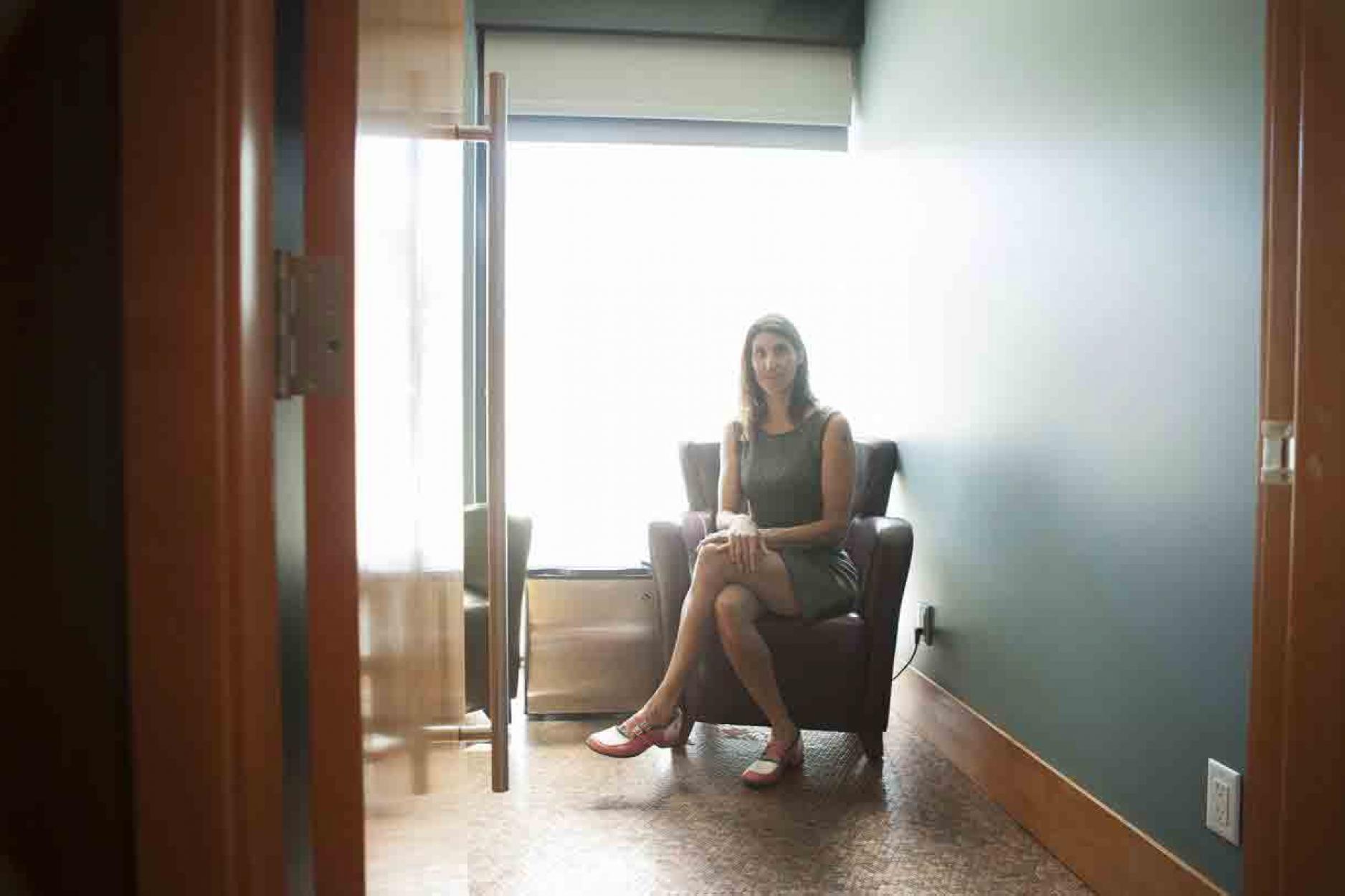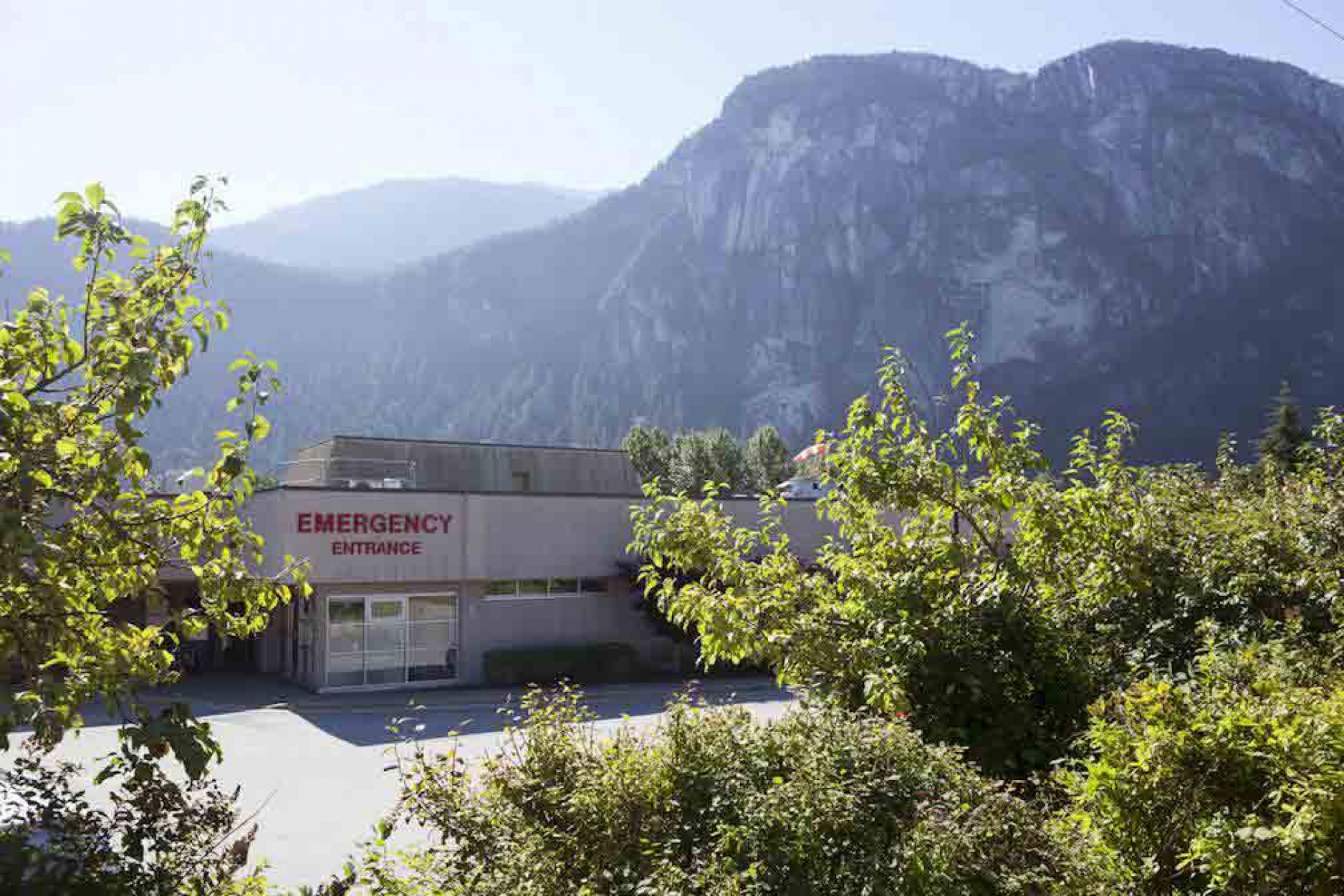In Canada, sexual assault is the least likely violent crime to be reported to police, and the vast majority — 90 percent, according to Statistics Canada — are never reported.
Spotty access to rape kits is contributing to the problem: Where you live determines how easy it is to get one, how sensitively you’re treated during the process, and even whether the evidence gathered holds up in court.
Front-line workers tell VICE News that improving access to those kits — simple packages of tools used to collect evidence of sexual assault — could have a huge impact. Women, especially in British Columbia, are forced to drive hours down desolate stretches of highway to reach a hospital where the evidence can be collected.
“They turtle,” says Christine Baker, a health services manager in Squamish, BC, of women who hear they have to travel an hour down the highway in order to get a rape kit. “They crunch in and they say, ‘No, not going to do it.’”
But it’s not just the west coast. Front-line workers in BC, Ontario and Nova Scotia tell VICE News that if an ambulance isn’t available, or the victim has no other way to travel, they sometimes make the journey locked in the back of a cop car.
The problem, which victims’ advocates say has a “simple fix,” often comes down to whether a community’s hospital has a freezer that locks to secure the evidence, and whether its physicians are properly trained to administer rape kits. If not, the victim has to travel to a hospital that does have these services — sometimes hours away, if a program exists in their province at all.

In North America, recent court cases have exposed how poorly the criminal justice system deals with sexual assault. This spring in Canada, protesters chanted outside the two court cases of Jian Ghomeshi, a former radio star who was charged with sexually assaulting four women. He was, in the end, acquitted on a spate of charges, while other charges were withdrawn after he issued an apology to one of his accusers.
And in the US last month, it was the judge in the Stanford rape case who drew scrutiny when he sentenced convicted rapist and swim star Brock Allen Turner to only six months in prison, though the prosecutor had asked for six years.
Better access to rape kits is one piece of the larger justice system puzzle, and front-line workers in Canada lay the blame at the feet of provincial health authorities who they say could fund better access to rape kits — but choose not to.
British Columbia is one of the worst areas for rape kit access in Canada.
In Squamish, north of Vancouver, health services manager Christine Baker is one of the people who gets the call if someone needs a rape kit.
After they hear they have to leave their community to access a rape kit, “most of the girls don’t report,” Baker said. “That was a huge challenge for us.”
A rape kit, also known as a sexual assault evidence collection kit, contains forms for the physician to fill out, swabs to collect evidence and bags to store the evidence, which can include clothing, debris and DNA samples. Physicians may also take blood and urine samples from the victim, to test for drugs in their system for instance, and may take photos of any injuries. As their bodies are treated like a crime scene, the invasive process can be retraumatizing for women, especially if the procedure is done by a physician with no forensic training.

The evidence-collection process takes about two-to-six hours, and the victim is often advised not to take a shower or use the washroom until after it’s over.
Some hospitals, particularly those in urban areas, offer survivors the option to store the evidence from their rape kit in a fridge or freezer to give them time to decide whether or not to report to police. If there is no storage program at the hospital, the victim must report to police immediately in order to access a rape kit — which can deter reporting if a victim is not mentally ready to do so.
If there were better access to rape kits and counselling services, “most definitely” more women in Squamish would report sexual assault to police, Baker said.
Sexual abuse is especially a problem in Squamish, where a history of residential school abuse has been passed down through generations of First Nations families, Baker said. As a result, her community has a high rate of sex abuse. “It’s in every family,” she said.
“We, as First Nations, have problems accessing services in general, and if it’s specific to rape kits and rape, it becomes even more challenging,” she explained.
Subsidizing forensic training for rural nurses is one quick solution. Another could be the creation of a mobile forensic nurse unit that can travel to far-flung areas. Buying freezers with locks for health centres is also a simple solution.

But Squamish city councillor Susan Chapelle says there is no political will to fix the problem.
“It’s definitely not a priority at the [BC] Ministry of Health right now,” Chapelle told VICE News. “I’ve talked to the minister many times, and every time I talk to him he says, ‘Where would you like me to take the funding from?’”
VICE News asked for comment from Health Minister Terry Lake on funding for sexual assault services, including rape kits.
“Timely access to this care is taken very seriously across the province, regardless of where the event takes place,” a spokesperson for the ministry wrote in an email. Rape kits “require appropriately trained health professionals to administer — both to ensure the patient’s needs and the legal requirements are met,” the spokesperson said, but could not say whether physicians with forensic training existed at all BC hospitals.
Last fall, after the city councillor voiced her concerns and went public with her own story of sexual assault, the province greenlit new funding for a forensic nurse in Squamish. But Baker said the service is only available from 9 am to 5 pm weekdays, and Chapelle said there are still 18 communities in BC with no access to the kits at all.
Proving the need for funding is a catch-22 due to underreporting, Chapelle added.
“We have to prove our statistics. We have to prove that women are being raped. And until they have the numbers in our corridor, because it’s difficult to provide numbers if nobody’s coming forward, so until we have those numbers, we can’t get funding for the resources that we need.”

On the east coast, it’s a similar story.
Like other areas of the US and Canada, Nova Scotia has adopted a program with specially trained nurses to administer the kits: they’re called Sexual Assault Nurse Examiners, or ‘SANE,’ for short. These programs cover three areas of the province, and the province has plans to expand into two more zones to offer more coverage. But it’s far from a perfect system.
“There are large pockets of the province that have no coverage,” Susan Wilson, SANE program coordinator for the Avalon Sexual Assault centre in Halifax, explains. And because bus service is limited, even in the biggest city, Halifax, transportation is an issue.
“If police are involved, police will transport the victim,” she said. “But that’s not the best thing either, to have to put a victim in the back of a police vehicle.”
Like BC, hospitals across NS offer rape kits, but they might not have specially trained people to administer them, or locking fridges to store them.
If a victim arrives at an emergency room at a hospital where there is no SANE program, they can only get a rape kit done if police are involved.
“You can only get the kit from police, so that’s a challenge,” Wilson explains. “There is no option to store [the evidence], so if the victim hasn’t entirely decided [whether to file a police report], or needs some time to decide and sort some things out — which could be some safety planning or just trying to decide whether they want to go through that process — there isn’t that option.”
Another issue is that ER physicians don’t necessarily have specialized training in forensic evidence collection, or how to gather evidence without further traumatizing the victim.

In a 1999 study comparing nurses with SANE training to non-SANE physicians, rape kits collected by SANEs were significantly more complete and better documented than those without the training, and none of the kits collected by the trained nurses had errors that would make them inadmissible in court. SANEs also used more discretion and the patients were happier with them versus the untrained nurses.
The lack of training, or lack of staff, can present challenges if the case does go to court.
“It could present challenges, for example if they can’t maintain the chain of custody, if they can’t stay with the evidence at all times,” Wilson says. “When that evidence goes to court, if they were to ask the physician: ‘at any time was the evidence left unattended, or not in your care?’ And they said ‘yes,’ then it brings in some doubt in being able to ensure that that evidence actually came from that victim at that time.
“That’s problematic,” she continued. “But that’s why police officers sometimes stay in the room for an exam, which is also problematic, because it’s inappropriate.”
Halifax criminal defence lawyer Tom Singleton confirmed that any attorney worth their salt will examine the chain of custody.
“Experienced defence counsel will always question the SANE nurse, or any other person involved, in great detail about the conduct of an examination and the steps taken to secure any exhibit,” he said. “The burden of proof in a criminal case is ‘beyond a reasonable doubt,’ so the objective is to cast doubt on that part of the Crown’s case.”

When sexual assault is reported to the RCMP, the federal police agency stores rape kits for a minimum of 20 years — unless a judge orders that the evidence can be destroyed. The RCMP could not say how many kits it has in storage.
There is no statute of limitations on sexual assault, meaning a victim can come forward decades later and the crime can still, in theory, be investigated and prosecuted.
But there is a different option available to victims who haven’t yet decided whether to report to police.
By storing rape kits, SANE programs give victims the time to carefully consider whether to report sexual abuse to police. How long that evidence is stored varies widely across the country — anywhere from six months to five years, depending on the size of the SANE program’s fridge or freezer.
VICE News has learned this time period is “arbitrary.” There is no nation-wide policy governing rape kit storage for these programs, which operate independently of police and offer victims the option of storing evidence collected from a rape kit while they decide whether to report to police.
The onus is on the victim to ask for the storage period to be extended (if that’s even possible to do), and the programs don’t have to notify the victim when the evidence is thrown out.
Many of these programs also don’t have the resources to test the DNA against a criminal database before they are thrown out — so the evidence disappears along with any hope of catching serial rapists.
In Detroit, just across the Canada-US border, an assistant prosecutor discovered a warehouse full of more than 11,000 forgotten and untested rape kits. Through a massive fundraising effort, prosecutors sent 10,000 of the kits to be tested in labs and, to date, they have found 750 serial rapists.

In BC, rape kits are kept for six months to a year, depending on where you are.
Meanwhile in NS, the time period is all over the map. On Nova Scotia’s South Shore, one SANE program stores the kits for five years — but at the SANE program in Halifax, an hour’s drive away, the kits are stored for only six months.
Wilson says the Halifax SANE program doesn’t have the capacity to store the kits any longer. Their freezer is “always full,” she says, and the number of rape kits stored at any one time depends on how strategically they stack the boxes.
It’s a similar story in Hamilton, Ontario, where one SANE nurse said the usual timeline is six months, depending how often she cleans the fridge out.
According to Judy Waldman, president of the Canadian Forensic Nurses Association, there is no nation-wide policy or standard on how long they should be stored.
At one point, she said, Toronto dropped its timeline from six months to three months due to a lack of space, and now the time limit is back up to six months — but it could change again in the future.
Sheila MacDonald, provincial coordinator for the Ontario Network of Sexual Assault/Domestic Violence Treatment Centres, says these programs are not storage facilities — they exist to give victims more time to decide whether to go to police.
The network is working to get a database up and running that would track how long that decision takes.
“We will, once we get our database established province-wide, look at: when do people make the decision?” MacDonald said. “Our time frame so far has been a little bit arbitrary. Do they generally make a decision within a month, or two months? If we had a better sense of that, maybe our time frame actually should be shorter. Or maybe longer.”
VICE News reached out to provincial health and justice departments across Canada asking for information about how accessible rape kits are. Unsurprisingly, access varied from province to province.
The BC Women’s Hospital said there are 63 facilities that offer sexual assault examinations throughout the province, though neither the hospital spokesperson nor the Health Ministry spokesperson could not say whether that meant rape kits were stocked in all these facilities, or whether physicians were trained in sexual assault forensic response. Front-line workers in BC said this is misleading, and not all these facilities have forensic nurses or storage facilities.

Saskatchewan’s Ministry of Health does not track how many facilities have physicians who have the training, but a spokesperson said “most emergency room doctors are considered qualified to perform a forensic examination for a sexual assault.”
Waldman said Saskatchewan has a new storage program that will soon start in Regina, giving victims the option to save evidence for six months.
In Manitoba, like other provinces, an urban-rural divide exists. In Winnipeg, hospitals have rape kits on hand and physicians are specially trained to administer them—but outside the city, evidence collection is done by ER physicians who are not necessarily trained, and the kits may not be in stock.
Ontario’s Ministry of Health says all hospitals have access to rape kits, and there are 35 hospitals that provide 24/7 emergency care to survivors of sexual assault. However, the ministry could not say exactly which hospitals stock rape kits and have physicians with forensic training—they have no records of that.
In PEI, forensic training is not mandatory for nurses, but is available those who want it, a spokesperson for the government told VICE News. All four ERs on the island have rape kits on hand, she said.
Rape kits, ultimately, are only a small piece of a bigger problem with the justice system, says Hilla Kerner, a front-line worker at Vancouver’s Rape Relief Shelter.
She said rape kits are only helpful in cases that the attacker denies any sexual contact and DNA evidence can contradict that claim. It’s rare that this is a line of defense, she said—but when it is, the evidence gathered with a rape kit is vital.
Basically, if the accused’s DNA is found on the complainant’s body, it removes the line of defence of: ‘I don’t know her, I’ve never seen her before.’
“We shouldn’t fool ourselves that a rape kit is the solution to getting more cases through the criminal justice system,” Kerner said. “There is a need for urgent reform in the criminal justice system, and rape kits are just one element of the whole transformation that needs to happen.”




Comments